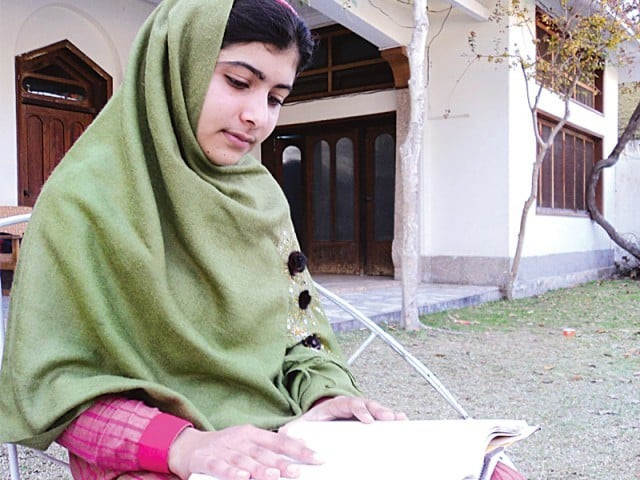As world helps Malala, Afghans ask ‘what about us?’
Many Afghans dismayed by what they say is the unequal response to the plight of their women and children.

As world helps Malala, Afghans ask ‘what about us?’
Malala Yousufzai, shot by Taliban gunmen for advocating girls' education, was flown from Pakistan to Britain to receive treatment after the attack this month which drew widespread condemnation and an international outpouring of support.
"Every day an Afghan girl is abused, raped, has acid thrown on her face and mutilated. Yet no one remembers or acknowledges these girls," Elay Ershad, who represents the nomadic Kuchi people in Afghan parliament, told Reuters.
Echoing concerns of other prominent Afghan women, Ershad said the government took no real interest in women's rights, instead using the issue for political gain and currying favour with Western backers, a claim Kabul has dismissed as untrue.
President Hamid Karzai has repeatedly condemned Yousufzai's shooting, even using it to address women's rights in his country: "The people of Afghanistan ... see this attempt not only against (Yousufzai) but also against all Afghan girls," he said last week.
The closest Karzai has come this year to condemning violence against women in Afghanistan, as seen on the scale he has done with Yousufzai, was in July when gunmen publicly executed a 22-year-old woman, named Najiba, for alleged adultery, which prompted an international outcry.
"If the president does not care about Afghan women in general, why does he suddenly care about Malala?" Ershad asked.
"No one (here) ever seeks justice once the television cameras are turned off."
The United Arab Emirates provided the plane taking Yousufzai to Britain, while British officials said the Pakistani government was footing the bill for her lengthy treatment in Birmingham.
Karzai has told Pakistani President Asif Ali Zardari that the attack was proof the two needed to tackle a common enemy, a move widely seen as an attempt to soothe ties between the neighbours amid bickering over Pakistani shelling across the countries' border.
'We better understand Malala's situation'
Afghan women have won back basic rights in education, voting and employment since the Taliban were ousted from power in 2001, sparking the present NATO-led war, but Afghanistan remains one of the worst places on Earth to be a woman, despite billions of dollars in aid and pledges to better their lives.
There is now mounting concern that such freedoms will not be protected and may even be traded away as Kabul seeks a peace deal with the Taliban, as most foreign troops prepare to leave the country by the end of 2014.
"We understand Malala's situation better than anybody in the world, (yet) our government defends women's rights with empty slogans and actually does next to nothing," said Suraya Parlika, a Nobel Peace Prize nominee and member of the upper house of parliament.
The popular, privately owned Tolo television highlighted the story of a policeman in eastern Ghazni province, called Zalmai, whose young son and daughter were shot dead in front of him by suspected Taliban members just days before Yousufzai's October 9 shooting in Pakistan's Swat valley.
"How can the Afghan government react so and condemn (the attack on) a Pakistani girl and ignore such an event like this?" Tolo quoted one of Zalmai's colleagues as saying this week, adding that officials had ignored requests to investigate.
Afghanistan's independent human rights commission says violence against women is increasing across the country as Karzai's government appears to backslide on women's rights.
The older brother of Mah Gul, a 20-year-old woman beheaded last week in western Herat province by her in-laws for refusing prostitution, said local officials initially took no interest in her murder.
"People get told off for slaughtering someone else's cow but we had to wait for her murder to be announced in the mosque before anything was done about it," 32-year-old taxi driver and Gul's brother Mohammad Nasir Akbari told Reuters.
Four people including Gul's husband and in-laws were arrested last week, officials said.



















COMMENTS
Comments are moderated and generally will be posted if they are on-topic and not abusive.
For more information, please see our Comments FAQ